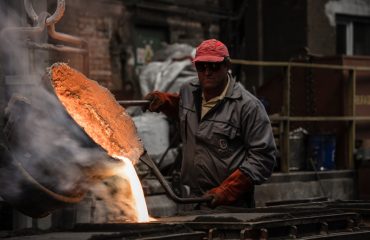In the construction and manufacturing industries, the strength and reliability of materials are paramount. Steel, a cornerstone of countless projects, demands rigorous quality control to ensure safety and performance. This is where CE certification comes in. This comprehensive guide will delve into the world of CE-certified steel products, explaining what it means, why it’s crucial, and how to navigate the market effectively.
What Does CE Certification for Steel Mean?
The CE marking (Conformité Européenne) is a mandatory conformity marking for products sold within the European Economic Area (EEA). It signifies that the product meets the essential requirements of relevant EU health, safety, and environmental protection legislation. For steel products, this means they adhere to specific European standards (EN standards) covering aspects like mechanical properties, chemical composition, and manufacturing processes. A CE-marked steel product isn’t just stamped with a mark; it’s a declaration by the manufacturer that rigorous testing and quality assurance procedures have been followed, ensuring the product’s fitness for its intended purpose.
The Rigorous Process of CE Certification for Steel
Achieving CE certification for steel isn’t a simple process. It involves several key steps:
- Product Design and Specification: The manufacturer must design the steel product to meet the relevant EN standards. This includes specifying the grade of steel, dimensions, tolerances, and other critical parameters.
- Manufacturing Process Control: Strict quality control measures are implemented throughout the manufacturing process. This includes regular testing of raw materials, in-process inspection, and final product testing.
- Conformity Assessment: The manufacturer must demonstrate conformity with the relevant EN standards. This may involve internal production control, type examination, or other conformity assessment procedures, depending on the specific product and applicable legislation.
- Declaration of Conformity: Once conformity is demonstrated, the manufacturer issues a Declaration of Conformity (DoC), a legal document stating that the product meets the essential requirements. This DoC is crucial evidence of compliance.
- CE Marking Application: Finally, the CE marking is affixed to the product itself, accompanied by the manufacturer’s identification and other required information. This marking is the visual confirmation of compliance.
Benefits of Using CE-Certified Steel Products
Specifying CE-certified steel offers numerous advantages:
- Enhanced Safety: The primary benefit is improved safety. By adhering to strict standards, CE-certified steel reduces the risk of structural failure, accidents, and injuries.
- Improved Quality: The certification process ensures consistent quality and reliability, reducing the likelihood of defects and failures.
- Legal Compliance: Using CE-marked steel ensures compliance with EU legislation, avoiding potential legal penalties and liabilities.
- Increased Confidence: CE certification provides assurance to clients, contractors, and regulatory bodies, building trust and confidence in the product’s performance.
- Better Project Outcomes: The use of high-quality, reliable steel contributes to better project outcomes, reducing delays, rework, and overall costs.
Applications of CE-Certified Steel Products
CE-certified steel finds widespread application across various sectors:
- Construction: From skyscrapers to bridges, CE-certified steel is essential for ensuring structural integrity and safety.
- Manufacturing: It’s used in the production of machinery, equipment, and various industrial components.
- Automotive: The automotive industry relies on high-quality steel for vehicle chassis, body panels, and other critical components.
- Infrastructure: CE-certified steel is crucial for building railways, roads, and other infrastructure projects.
- Energy: The energy sector uses steel in wind turbine towers, power plant components, and pipelines.
Choosing Reputable Suppliers of CE-Certified Steel
Selecting a reliable supplier is critical to ensuring the authenticity of CE certification. Here are some key considerations:
- Verification of Certification: Always request proof of CE certification, including the Declaration of Conformity (DoC) and relevant test reports.
- Supplier Reputation: Choose suppliers with a proven track record of providing high-quality steel products and adhering to industry best practices.
- Traceability: Ensure the supplier can provide full traceability of the steel, from its origin to the final product.
- Industry Accreditations: Look for suppliers with relevant industry accreditations and certifications, demonstrating their commitment to quality.
- Customer References: Check customer reviews and testimonials to assess the supplier’s reliability and customer service.
In conclusion, using CE-certified steel products is not just a matter of compliance; it’s a commitment to quality, safety, and reliable project outcomes. By understanding the certification process and choosing reputable suppliers, you can ensure the strength and integrity of your projects for years to come.
Tags: CE certified steel, steel certification, European conformity, steel products, construction steel




